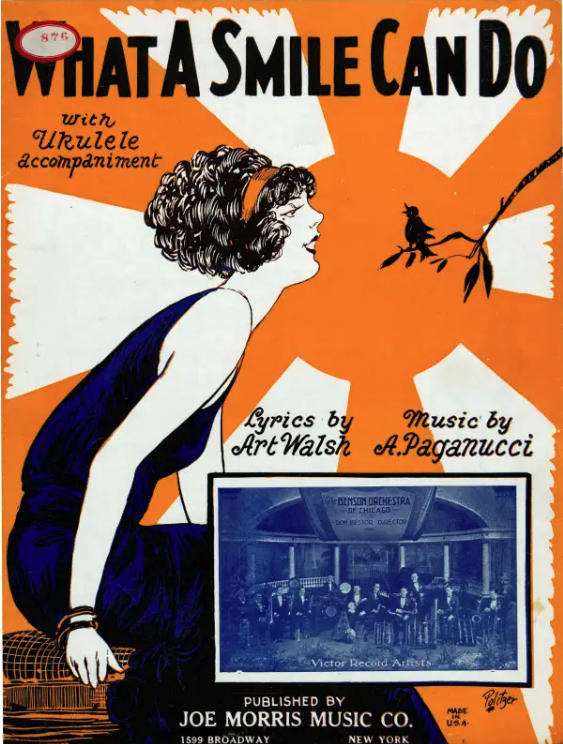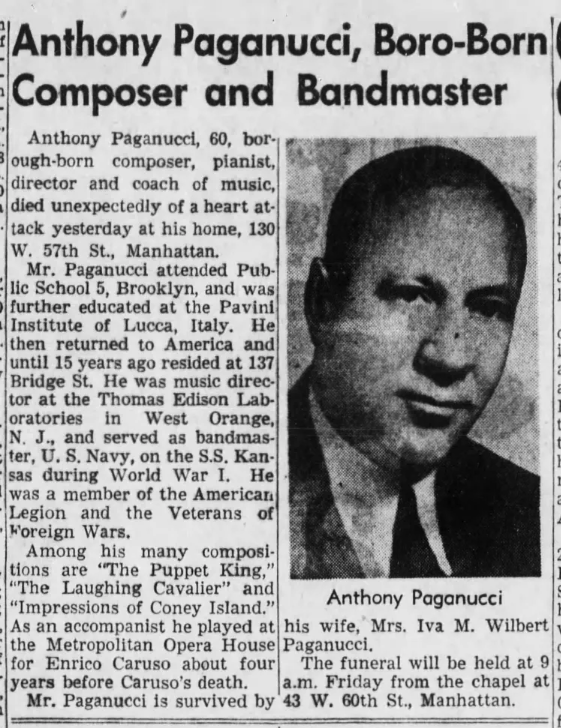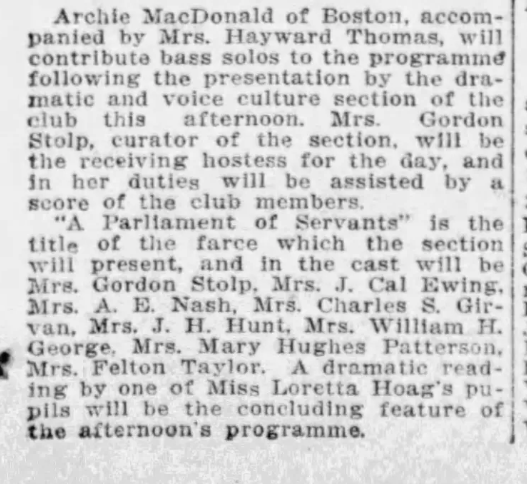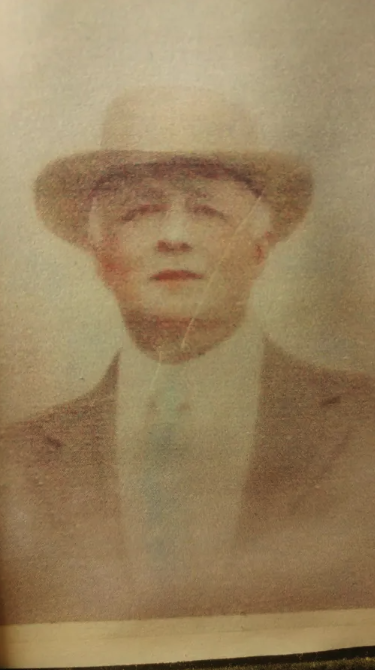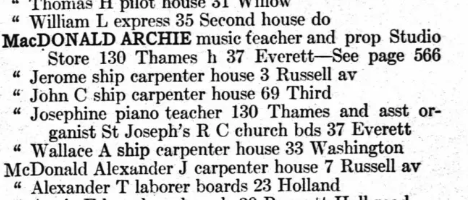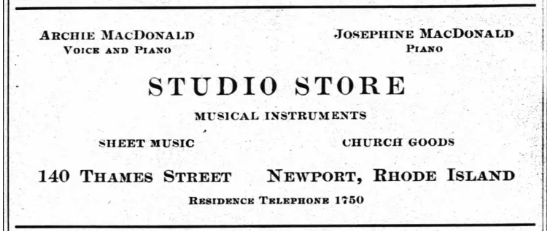The Music of the Great War
From the Library of Congress Digital Archives
Anthony Paganucci
Above we have the handwritten music for “Our Lads Across the Sea” by Navy Musician Anthony Paganucci. He composed this song in 1918 while he was a member of the band at the Naval Training Station in Newport.
Paganucci was born in Brooklyn, New York in 1893. He would join the navy and be stationed in Newport from 1917 to 1918 before serving aboard the USS Kansas. He would be discharged from the Navy in 1919 at the rank of Bandmaster.
Paganucci would return to New York as a composer and write music and serve as the musical director of Thomas Edison Laboratory.
In 1925 he composed a popular song “What A Smile Can Do” and you can hear a recording from the song done by the 14 Virginians that year here.
Paganucci died in 1954 in Manhattan. His incredible career is highlighted in his obituary below.
Archie MacDonald
Archibald E. MacDonald was born in Massachusetts in 1869. He was the son of Canadian immigrants. In 1900, the U.S. census has him living and teaching voice and piano in Canton, Mass. MacDonald toured as a professional vocalist before taking a job as the organist at St. Joseph’s Church in the city.
By 1913 he was living in Newport on Everett Street and running a music store on Thames Street, in addition to his duties as an organist. His eldest daughter Josephine was also an organist and music teacher in Newport.
In 1917 MacDonald composed “Do Your Bit” and published it in Newport at his store on Thames Street.
MacDonald’s music would be performed in Newport long past his death, with his daughter Josephine often championing it at performances at churches. This article talks a little about his life. Although we know that he was in Newport before 1917!
Archie MacDonald died in 1927 and is buried in St. Mary’s Cemetery in Canton, Massachusetts, with his wife Elizabeth and three of his fourteen children.
Newport Daily News, October 29, 1974
Sidney B. Wright
Sidney Wright was born in Illinois and lived in Virginia and Pennsylvania before moving to Newport around 1913. He was not a professional musician, making his money as a tattoo artist.
We have two examples of compositions by Sidney Wright, both written in 1917 and published in Newport by Wright.
Wright would move to Somerville, Massachusetts in 1920. He would die from injuries from a fire at his tattoo parlor in 1943.


